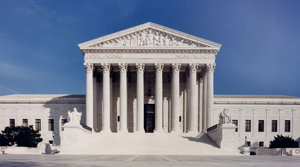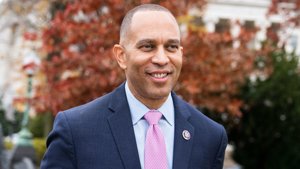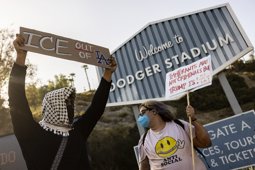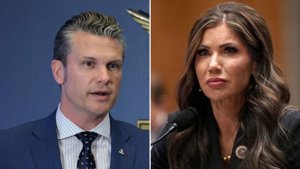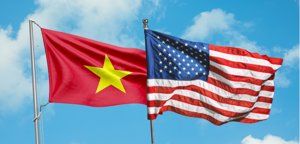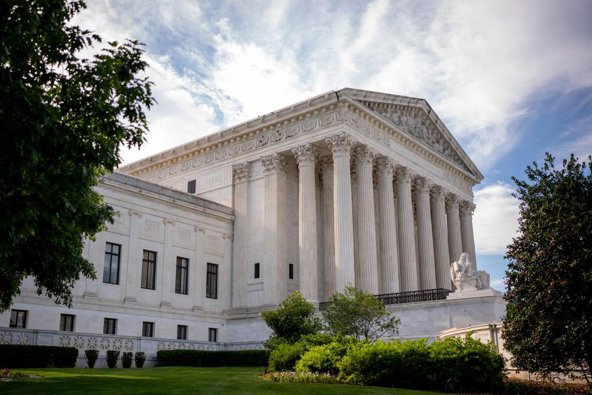
Supreme Court Split on Injunctions, Citizenship
Justices appeared divided over nationwide injunctions as they heard arguments on Trump’s executive order ending birthright citizenship.
High Court Wrestles with Limits of Lower Court Authority
The Supreme Court appeared deeply divided Thursday as it heard oral arguments in a high-profile case challenging President Donald Trump’s executive order aimed at ending birthright citizenship. The proceedings quickly shifted focus from the immigration policy itself to the broader issue of whether lower federal courts overstepped by issuing nationwide injunctions against the order.
While a ruling date is uncertain, the Court fast-tracked the case, indicating that a decision could arrive in the coming weeks. The order at the heart of the dispute reinterprets the 14th Amendment to deny U.S. citizenship to children born in the U.S. if their mother is in the country unlawfully or temporarily, and their father is not a U.S. citizen or legal permanent resident. Lower courts blocked the order, prompting the administration’s appeal.
Justices across the ideological spectrum acknowledged the growing use of universal injunctions under both Democratic and Republican administrations. However, after more than two hours of argument, no clear consensus emerged on whether to curtail their use, and if so, how to do so within constitutional limits.
Justice Sonia Sotomayor said the Trump order appeared to violate multiple precedents and warned that restricting injunctions could result in “hundreds or thousands” of fragmented lawsuits. Conversely, Justice Samuel Alito pointed to the risks of 680 federal district judges issuing conflicting nationwide rulings. “Sometimes they're wrong,” Alito noted, adding that these judges, though well-meaning, may lack sufficient information when issuing urgent decisions.
U.S. Solicitor General John Sauer argued that lower courts’ nationwide injunctions violate Article III of the Constitution and exceed traditional equitable authority. He emphasized the asymmetrical burden placed on the government to win every case, while challengers only need one favorable ruling to block policies nationwide.
Justices Seek Middle Ground Amid Legal Complexity
Kelsi Corkran, representing advocacy groups, urged the Court to allow nationwide injunctions in cases involving fundamental constitutional rights. She argued that appellate courts already serve as a check when lower courts overreach. Justice Elena Kagan echoed the concern, stating that the Supreme Court cannot possibly hear every case now handled by the lower courts, which have already ruled against the Trump order, including judges appointed by Trump himself.
Justice Clarence Thomas reiterated his longstanding opposition to universal injunctions, noting they were not used before 1963 and calling them “legally and historically dubious.” Justice Alito, however, questioned whether other legal remedies like class action certifications could serve as viable alternatives, suggesting that eliminating universal injunctions might not resolve the underlying practical issues.
New Jersey Solicitor General Jeremy Feigenbaum, representing states that challenged Trump’s order, acknowledged concerns over lower court overreach but warned against eliminating universal injunctions altogether. He stated that class actions often don’t move fast enough to prevent irreparable harm and argued that such injunctions are sometimes necessary to ensure timely relief.
Justices Roberts and Sotomayor pressed Feigenbaum on how courts could determine when nationwide injunctions are appropriate, and what limits should guide district judges. The legal complexity left many questions unresolved, including whether a clear legal standard could be applied consistently going forward.
Meanwhile, Trump defended his order in a post on Truth Social, arguing that birthright citizenship was intended for the descendants of slaves—not for children born to people “taking vacations” in the U.S. to gain citizenship. “It has nothing to do with illegal immigration,” he asserted.
Though the original issue involved birthright citizenship, the day’s arguments largely centered on judicial authority, highlighting a major constitutional debate that could reshape how federal courts operate. Until the Court rules, Trump’s executive order remains on hold nationwide.

